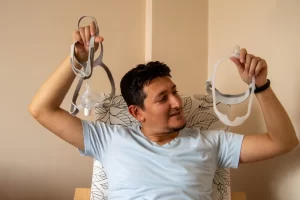
The kidneys are located on the side, on each side of the spinal column, and are the urinary tract organs that are most frequently injured.
The kidneys are protected by the spine, strong muscles in the back and lower rib cage, and a layer of fat as a shock absorber.
A kidney injury can have one or more components of the kidney affected, and the severity can be highly variable. The causes of kidney injury discussed below can also be diverse.
Prognosis of the disease
Expectations will vary greatly depending on the causes and severity of the injury. For example, injuries can be minor and reversible or, in the worst cases, life-threatening. They can also be a prolonged problem and end up generating various complications.
There are also cases where the kidney works properly again. Another possibility is kidney failure. Usually, if the injuries are detected early, most patients manage to recover.
Symptoms of kidney injury
Symptoms of kidney injury may include pain or bruising in the upper abdomen or between the hip and ribs. Other signs to watch out for are:
- Fever
- Swelling or pain in the stomach, back, or side
- Drowsiness
- Increase of cardiac frequency
- vomiting or nausea
- pale or cold skin
- sweating
The kidney is healthy, and the other is affected. There may be no symptoms.
Medical tests for kidney injury
The specialist doctor must be informed of possible recent illnesses, treatments to which the patient is subjected, or potential contact with any toxic substance. In the event of a physical injury, he must know how it occurred. After this examination, different tests can be performed on the patient, such as:
- CT scan of the abdomen
- MRI of the abdomen
- abdominal ultrasound
- electrolytes in the blood
- Blood test
- kidney x-ray
- Angiography of the renal artery or vein
- Kidney scan
- Urine analysis
A physical exam may detect physical bleeding, tenderness over the kidney, shock, or signs of kidney failure.
What are the causes of kidney injury?
The causes of a kidney injury can be very diverse. The kidneys can be injured by damage to the blood vessels that supply or drain them, such as:
- Aneurysm
- arterial obstruction
- Renal vein thrombosis
- trauma
Other reasons for a kidney injury may include:
- autoimmune disorder
- diabetes or high blood pressure
- Cancer of the kidney, pelvis, or colon
- Inflammation from medications or infections
- kidney stones
- Bladder outlet obstruction
- Angiomyolipoma (benign tumor)
- Exposure to toxic substances
- Excessive accumulation of bodily waste such as uric acid
Can it be prevented?
You can lower your chances of kidney injury with some of the following tips:
- Watch out for potential sources of poisoning
- Follow the instructions of specialists in the use of medications or other diseases
- Wear the correct safety equipment at work or in sports activities
- drive carefully
Treatments for kidney injury
In minor cases, it may only be necessary to control fluid intake and rest, making it easier for the kidney to heal independently.
To treat more urgent symptoms or treat possible complications, it may be necessary to stay in the hospital.
- Bed rest for one to two weeks. In the case of bleeding, until it subsides
- Observation and treatment in cases of symptoms of kidney failure
- pain relievers
- Modify the diet
- Medicines, in the case of damage due to toxic substances or to treat inflammation
- Eliminate medications that may have been the source of the injury
May be necessary, among which we see:
- Repair a torn kidney, broken blood vessel, or similar injury
- Removing the kidney, draining the space, or stopping the bleeding
- place a stent
- Remove the blockage caused by an obstruction





